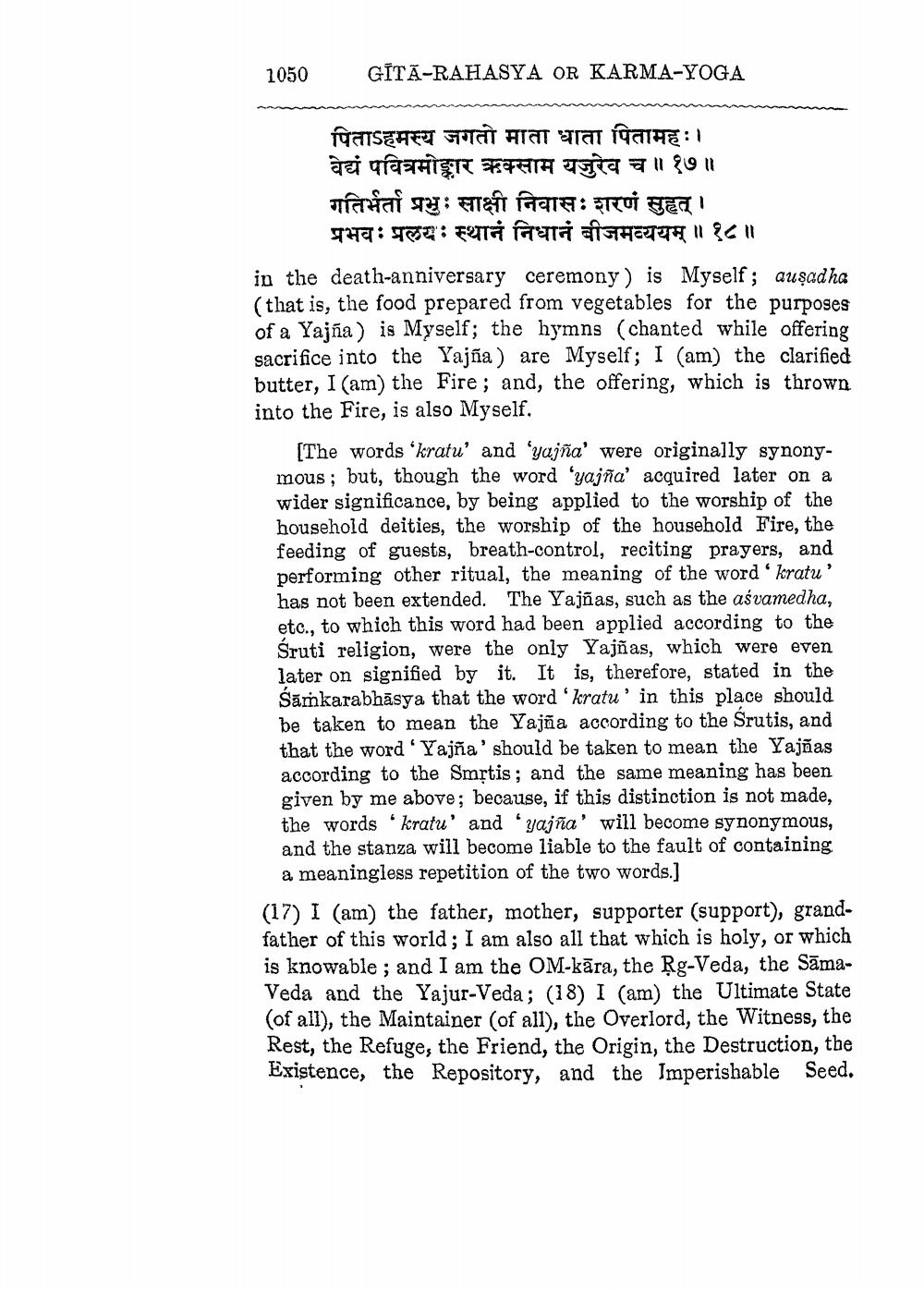________________
1050
GÍTA-RAHASYA OR KARMA-YOGA
पिताऽहमस्य जगतो माता धाता पितामहः। वेद्यं पवित्रमोङ्कार ऋक्साम यजुरेव च ॥ १७॥ गतिर्भर्ता प्रभुः साक्षी निवासः शरणं सुहृत् ।
प्रभव:प्रलयः स्थानं निधानं बीजमव्ययम् ॥ १८॥ in the death-anniversary ceremony) is Myself ; auşadha (that is, the food prepared from vegetables for the purposes of a Yajña) is Myself; the hymns (chanted while offering sacrifice into the Yajña) are Myself; I (am) the clarified butter, I (am) the Fire; and, the offering, which is thrown into the Fire, is also Myself.
[The words ‘kratu' and 'yajña' were originally synonymous; but, though the word 'yajña' acquired later on a wider significance, by being applied to the worship of the household deities, the worship of the household Fire, the feeding of guests, breath-control, reciting prayers, and performing other ritual, the meaning of the word 'kratu' has not been extended. The Yajñas, such as the aśvamedha, etc., to which this word had been applied according to the Śruti religion, were the only Yajñas, which were even later on signified by it. It is, therefore, stated in the Śāmkarabhāsya that the word 'kratu' in this place should be taken to mean the Yajña according to the Srutis, and that the word 'Yajña' should be taken to mean the Yajñas according to the Smộtis; and the same meaning has been given by me above; because, if this distinction is not made, the words ‘kratu' and 'yajña' will become synonymous, and the stanza will become liable to the fault of containing
a meaningless repetition of the two words.] (17) I (am) the father, mother, supporter (support), grandfather of this world; I am also all that which is holy, or which is knowable ; and I am the OM-kāra, the Rg-Veda, the SāmaVeda and the Yajur Veda; (18) I (am) the Ultimate State (of all), the Maintainer (of all), the Overlord, the Witness, the Rest, the Refuge, the Friend, the Origin, the Destruction, the Existence, the Repository, and the Imperishable Seed.




